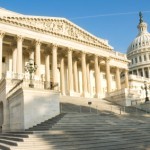
by | Jan 16, 2012
 The gaveling in of the Iowa Legislature’s 84th General Assembly last week signaled an end to the 2012 Presidential Caucus season and the return of a more local political focus for Iowans.
The gaveling in of the Iowa Legislature’s 84th General Assembly last week signaled an end to the 2012 Presidential Caucus season and the return of a more local political focus for Iowans.
There is no doubt that much of the session’s oxygen will be sucked up by the major issues that failed to produce any legislation following last year’s battles. These issues include reforming the tax code, mental health services, and education, as well as another round of sparring over Iowa setting up a health insurance exchange to work in conjunction with Obama Care.
While these will grab a majority of the headlines, and a good share of our attention here at The Conservative Reader: Iowa, there have already been a number of very interesting bills introduced that we will also be following.
As of now the bills and issues outside “the big 4†that we have flagged to watch closely are as follows: Term limits, random drug testing for recipients 84th of certain state benefits, banning red light and speed cameras, and the fate of nuclear power in Iowa.
After being deluged for so many months with candidates and their ever changing poll numbers, it is easy to forget that in many ways the caucus season is an imperfect method for measuring Iowa’s current ideological perspective. Removing the factors attached to individual candidates such as “likeability†and “electabilityâ€, and instead gauging the debate and the public reaction of Iowans to more hyper-local issues is a far more telling indicator of where we stand. Ironically these debates and their results likely will tip our hand as to which Presidential candidate will be awarded our 6 electoral votes in November.
In the following weeks stay tuned for investigations, updates, analysis, and opinions on the major issues being debated at the State House. As mentioned earlier, while we will not ignore the most publicized topics of debate this session, a number of bills that will exist in the shadows of the major priorities are just as important.
Though we will be closely watching with an appropriate level of skepticism, we wish all those involved with the 84th General Assembly well in their efforts to make improvements for all Iowans. When we feel they have achieved improvement—we will trumpet it. When we feel they have caused damage to our way of life—they will be called to account.
On with Democracy…
![The Lost Art of Governing]()
by | Mar 14, 2011
 The world of modern American politics has often been described as “Hollywood for the ugly.†While this may or may not be true, politicians are indeed asking us to do what film directors do when we attend the movies—suspend disbelief. Removing reality and practicality certainly facilitates a good story and makes for fantastic special effects, but when these principles are used in running a government the results are, predictably, disastrous.
The world of modern American politics has often been described as “Hollywood for the ugly.†While this may or may not be true, politicians are indeed asking us to do what film directors do when we attend the movies—suspend disbelief. Removing reality and practicality certainly facilitates a good story and makes for fantastic special effects, but when these principles are used in running a government the results are, predictably, disastrous.
Though you wouldn’t think you would have to inform our elected officials of such things, the sad truth is that every non-creative discipline is subject to cumbersome, but necessary confines. In other words—reality.
This is true not only in the fields of engineering, architecture, aviation, music, and chemistry, but also in governing. The skill in any of these endeavors lies in achieving a desired result within the confines of a given discipline, and skill is precisely what is lacking in the vast majority of our Legislators. If you are an engineer or an architect you are constrained in your designs by pesky things such as physics, load bearing, and torque. In aviation you are constrained by Newton’s laws of motion and gravity. Musicians are largely required to write and play inside a given key. These are the reasons that you don’t simply draw your dream house on a sheet of paper and give it to a builder to begin construction; or why anyone can’t just pick up an instrument, randomly play a bunch of notes, and have it sound good.
In governing the main confines that an American politician must adhere to are the Constitution and the budget. The mess that our Country finds itself in currently can largely be attributed to a lack of discipline in complying with these two constraints. That is not to say that the last three decades of our elected officials have not been skilled at anything, just that they have shown prowess in the areas that benefit themselves and not our Nation. They have by and large focused on, and have mastered, the art of getting elected and re-elected. They have succeeded in the craft of politics, a far different and easier thing than governing.
What we are in dire need of at this moment is a renaissance in the art of governing. This entails providing the most results with the resources you have on hand. Fiscally speaking the concept is as simple as taking projected revenues for a fiscal year and working backwards from that number to zero. This is not to say that the process is not complex, but that the complexities and hard work lay in the prioritizing. Fighting these battles needs to be the “serve us†part of the public service that our legislators are supposedly providing us. The fact is that when they appropriate without the boundaries of a budget they are shirking off all the hard work and bitter infighting. In turn they are doing us all a public “disservice.â€
A look back at the make-ups of the last three Congresses provides some insight into why, particularly fiscally, they have failed so miserably. The 109th Congress was sworn in 2005, the 110th in 2007, and the 111th in 2009. The members whose previous occupation was listed as “Accountant†numbered five in the 109th and bumped up to six for both the 110th and 111th sessions. This means that of the bodies 535 members an equal number (six) listed their prior job as “Peace Corp. volunteer†as those who did “Accountant.†Perhaps a more relevant and disturbing development is that the 109th Congress, for the first time in history, had a greater number of members list “public service/politics†as their prior profession than list business (195 to 193). This trend continued in both the 110th and 111th Congresses, with the 111th being the first in history to have “public service/politics†as their most listed prior occupation, beating out both business and law.
Having such a large number of leaders with their formative experience being politics is clearly unhealthy and you need not be a sage to predict the outcome. Reaffirming that any child can color outside the lines, it is hardly surprising that since the 109th Congress was sworn in in 2005 the National Debt has grown from $7.95 trillion to the $14.1 figure it stands at today. What this shows is that while the average years served by our Legislators is on the rise, along with an ever increasing amount of political experience had even prior to taking office, their fiscal performance worsens.
Though discouraging, as long as our body politic is composed of and replenished with those schooled and skilled primarily in politics we will continue to see destructive results. There is a skill to good governance. Like any other discipline the skill resides in achieving results within confines, in this case the Constitution and the budget. When we are able to elect leaders with this skill we will have elected prioritizers instead of mere appropriators. Until then we will remain victims of the lost art of Governing.




 The gaveling in of the Iowa Legislature’s 84th General Assembly last week signaled an end to the 2012 Presidential Caucus season and the return of a more local political focus for Iowans.
The gaveling in of the Iowa Legislature’s 84th General Assembly last week signaled an end to the 2012 Presidential Caucus season and the return of a more local political focus for Iowans.